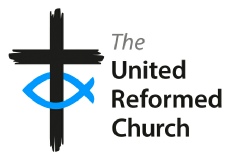







The miracles of Jesus : index episode 1

Episode 1
The Message of the Miracles
In the first century what did the miracles of Jesus mean?
Chapter 1 Introduction Setting the scene; the land where Jesus lived
Chapter 2 Introduction Setting the scene; Jesus and his miracles
Chapter 3 The raising of the widow's son at Nain
Chapter 4 The Qumran community and the Dead Sea Scrolls
Chapter 5 The feeding of the 5,000
Chapter 6 Moses feeding the Israelites in the desert
Chapter 7 Jesus walking on the water
Chapter 8 Joshua taking the Israelites across the Jordan
Chapter 9 Capernaum
Chapter 10 Changing the water into wine at the wedding feast in Cana
The Messiah
The word `Messiah' means `the anointed one'. At their coronation, Old Testament kings were anointed with oil, symbolising their status as leaders chosen by God. According to the Old Testament, the greatest leader of the Jewish nation was King David, who started out as a shepherd and a warrior before he became king. The people hoped that one day there would be a new `David', a descendant of the legendary monarch, who would defeat
Israel's enemies and rule in justice and peace.
There are various, biblical images given of the Messiah's role and character. He would lead his people like a shepherd (Micah 5.3,4; Ezekiel 37.23); he would be a ruler (Daniel 9.25) establishing a kingdom of peace and justice, destroying the wicked and judging with righteousness (Isaiah 11.1-9); he would act as both priest and king. Programme 1 goes on to explore possible parallels between Jesus and major figures in ancient Jewish history Elijah, Moses and Joshua:
Elijah
The biblical prophet Elijah, whose name means `The Lord is my God', challenged the worship of Baal in the northern kingdom of Israel during the reign of King Ahab and his queen, Jezebel. Jews in Jesus' day would have regarded Elijah as the epitome of a prophet and many may have believed that Jesus was Elijah come back to earth (1 Kings 19.8; Matthew 4.2; 16.14). Others thought that John the Baptist might be Elijah, though he denied this (John 1.1924). Jesus, however, did refer to John the Baptist as the Elijah who was to come (Matthew 17.1013).
Moses
The Old Testament, especially the Book of Exodus, records that Moses led the people of Israel out of slavery in Egypt, across the Red Sea (`Sea of Reeds' in Hebrew) and the desert towards Canaan, the Promised Land. It was also Moses who gave them the law of God. As Moses had rescued their ancestors from slavery, the Jews living in Galilee at the time of Jesus similarly longed to be set free from Roman occupation and were waiting for another Moses figure. Before the people of Israel settled in the Promised Land, Moses had said to them `[God] will send you a prophet like me from among your own people and you are to obey him' (Deuteronomy 18.15). Was Jesus the new Moses?
Joshua
Joshua took over from Moses and became the military leader of the Israelites. The Book of Joshua shows him leading the people across the river Jordan into the land of Canaan and conquering Jericho. On the brink of taking possession of the land, however, the people doubted God and were condemned to `forty years' of wandering in the desert. Joshua governed the twelve tribes successfully and earnt the reputation of being God's chosen servant (Joshua 24.29) who eventually established Israel in the promised land.
Miracles of Jesus
Part 1 Jesus, the Political Threat


Station Road, Knowle, Solihull, West Midlands B93 0HN

